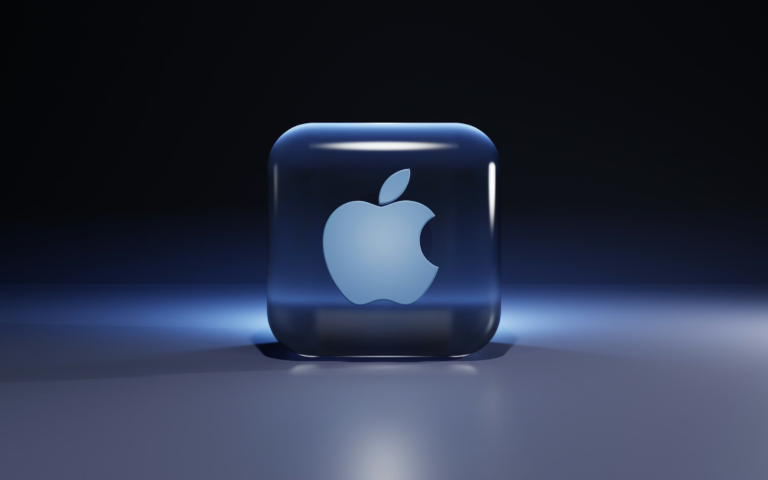Innovation has been the cornerstone in the career of Alphabet and Google chief executive Sundar Pichai, and despite that, even he acknowledges that the current fascination with artificial intelligence in the world has significant dangers. In an interview with BBC, Pichai said that, something that many in the technology industry have been muttering over the last few months; in case the AI bubble pops right up, it is not going to spare any company, them included. In that one sentence, one can see more than ten years of experience that created one of the strongest technology companies in the world, and a silent awareness that even such giants can collapse when the expectations run quicker than the reality.
We are currently in an era known by many analysts as the AI gold rush. The firms are in competition to produce faster models, acquire more chips and win as much market as possible before their counterparts. This is going to be an extraordinary moment as Pichai himself described it, yet extraordinary moments are characterized by the pressure, fear, and the potential to make errors. He cited that the market has got some aspects of irrationality, which immediately makes one think about the dotcom bubble of the late 1990s. At that time thousands of businesses were getting financed on huge promises concerning the internet, only to fail when they were unable to deliver on their hype. The comparison is not by chance. Pichai is aware that history may repeat itself when people are excited by the urge to disregard the reality.
The stock price of Alphabet has been on an upward trajectory and it has increased by almost 46 percent since the beginning of the year. It appears that investors are sure that Google will continue to be one of the most powerful forces in artificial intelligence as it plans to compete with OpenAI, the company that owns ChatGPT. However, increasing stock prices are not necessarily increasing stability. Some investors have already raised concerns in the United States that AI values are getting unrealistic. Meanwhile, the United Kingdom has issued warnings to regulators of the potential development of a bubble in the event that companies keep pouring money into AI without creating sound economic bases. Markets start shattering when money circulates at a faster rate than long-term thinking.
Despite these inquiries, Google has been pouring money in AI in various nations. In September, the company made a commitment of 5 billion pounds in the United Kingdom in the next two years. The funding will be used to finance new data centers, more computing power and research within DeepMind, a London-based artificial intelligence lab at Google. This decision is an indication of something: Google is not abandoning AI, although it is taking into account doubt. Rather, it is planning to live in a world whereby advanced computing is still transforming industries, nations and power relations around the world.

The more eye-opening parts of the interview with Pichai were when he admitted that Google is starting to train its next-generation artificial intelligences in Britain. The new prime-minister of the United Kingdom, Keir Starmer, has on multiple occasions stated that he would like to see his nation as the third-largest AI nation in the entire world after the United States and China. It is a huge aspiration, but it is made possible with the help of Google. Over the decades, leading computer scientists and experts in the field of artificial intelligence have been created in British universities and laboratories. The UK government now has a chance of transforming research into influence with the assistance of Google. It is yet to be determined whether it will pay off, but Pichai is evidently confident that the possibility is worth the risk.
Nonetheless, there is no technology that is not expensive in the future. Pichai also addressed the subject of the sheer volume of energy consumed to train and run large AI models, stating that this amount of energy is immense. This is the problem that is not popular in the news but it may be the most significant problem of all. It is enormous in terms of electricity and cooling systems as well as space to train one advanced model. This is a challenge even to the most dedicated companies. Alphabet has been long boasting to achieve net-zero emissions yet Pichai now acknowledges that they will postpone them. The company in question is simply not able to expand its computing capacity and remain completely in pace with the previous environmental promises. It has been interpreted as a red flag by some critics who note that artificial intelligence could become a solution to the problems of climate instead of to its acceleration.
The thoughts of Pichai are based on the experience. The technology industry has evolved and changed many times over in his eyes. The advent of smart phones, the social media phenomenon, the cloud computing boom, all this has changed our ways of anticipating technology. AI is transforming the expectations of individuals again today. The pace is even greater this time. What is taken years to do now is done in months. Models are also issued, revised and discarded at an astounding rate. The firms that are confident enough today may be irrelevant tomorrow.
Fear is not so much the most astonishing element of his message, but realism. Pichai does not argue that Google is safeguarded by its stature and history. Rather, he talks as a person who is aware of the fact that technology can never be assured. Today as a leader does not imply being a leader all the time. That honesty is rare. Most CEOs utter confident slogans. The words used by Pichai demonstrate a more considered attitude, an attitude that appreciates both the possibility and the threat of artificial intelligence.
It is also too human in his confession. The markets have the belief that large corporations cannot fail however history has proven them wrong. The technology space is full of names that were once strong, but faded away whether it was the search engines before Google, the phone brands before Apple or the social networks before Meta. Pichai would appear to know that fact. He does not intend to frighten, but it is something to keep in mind when it comes to innovation: it needs a balance between enthusiasm and caution.
Is artificial intelligence a bubble? No one can say for certain. As opposed to the dotcom era, AI already has definite and practical applications. It is used by hospitals to scan scans. Banks use it to prevent fraud. It is a way that students learn faster. But there is the fear that excess money and excess hype could drive firms to make unsafe promises and risky gambles. In the event of such happening, even the power players will be affected.








